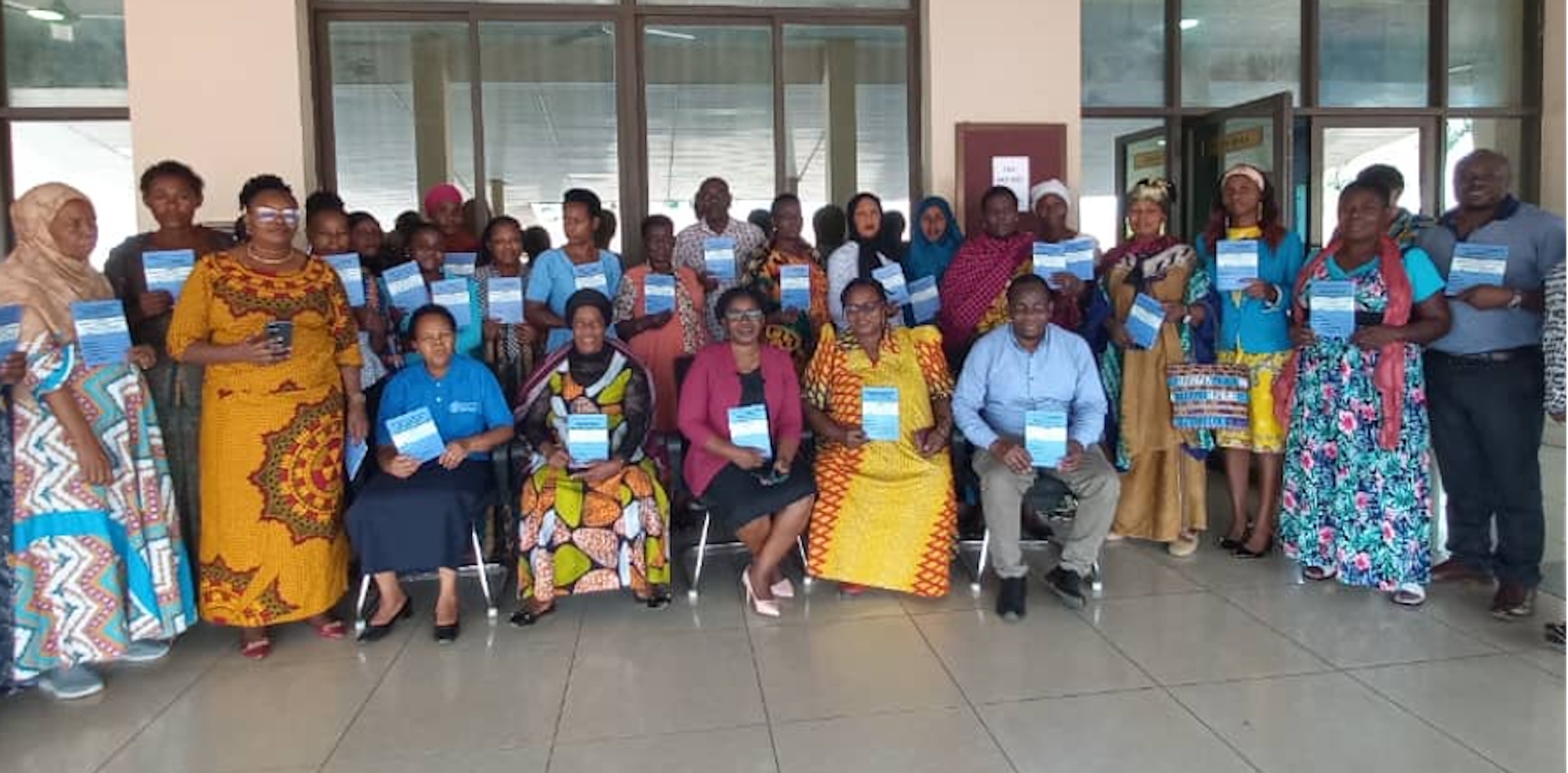FAO trains and builds the capacity of 510 leaders and members of TAWFA on Village Community Banks (VICOBA)

©FAO/Edward Kondela
Morogoro, Tanzania | From September 30 to November 3, 2024, 510 leaders and members of the Tanzania Women Fishworkers Association (TAWFA) were trained on Village Savings and Loans Associations (VSLA) and Village Community Banks (VICOBA), a key community-based microfinance model. This initiative was organized by the Ministry of Livestock and Fisheries (MLF) in collaboration with the Food and Agriculture Organization (FAO) under its project, “Implementing the Small-Scale Fisheries Guidelines for Gender-Equitable and Climate-Resilient Food Systems and Livelihoods – Phase 2.”
The trainings were facilitated by VSLA and VICOBA experts, Mr. Sosthene Milobo from Aga Khan University and Mr. James Golola from WWF, alongside FAO National Project Coordinator Ms. Oliva Mkumbo and members of the National Task Team for small-scale fisheries (SSF NTT) for implementing the National Plan of Action for Small-Scale Fisheries (NPOA-SSF).
The trainings were delivered in two phases. The first phase, known as the Training of Trainers (ToT), took place over four days in Morogoro, starting on 30 September 2024. This session provided intensive learning opportunities, with practical exercises and assessments for trainers. The second phase focused on community-level training and involved training at least 20 members from each of the 30 TAWFA/VICOBA groups. The trainings’ objectives were:
• To teach participants the fundamental concepts of the VSLA methodology.
• To equip them with facilitation skills for implementing the VSLA methodology.
• To enable participants to form effective savings groups, access loans from their collective savings, and follow proper VSLA procedures.
VICOBA is a community savings and credit model that operates by pooling regular weekly contributions from members into a common fund. Members can access these funds either through rotational sharing or short-term loans, provided at an agreed-upon interest rate. VICOBA has become a preferred strategy for addressing livelihood and financial challenges in underserved communities.
As part of the initiative, 30 VICOBA toolkits were procured and distributed by the project to group leaders. Each toolkit included a secure cash savings box with three locks, passbooks for record-keeping, stamps and markers for marking shares, record books, visitor registers, a draft constitution tailored to each group’s needs, and a comprehensive VICOBA guidebook for reference. These materials are instrumental to enable the establishment and operation of the groups.

Cash-Books and VICOBA toolkits were handed over to the group leaders.
Photo: FAO/Edward Kondela
Successful pilot phase implementation
The trainings organized during phase two of the project build on the success of the trainings piloted during phase one. The pilot phase demonstrated the effectiveness of VICOBA as a tool for empowering small-scale fisheries communities. The initiative provided members with the means to access affordable credit, stimulating financial resilience and contributing to sustainable livelihoods. The positive results showcased the potential of community-based microfinance models in driving development and improving the lives of small-scale fishers and their families.
In 2021 the MLF adopted the NPOA-SSF to implement the SSF Guidelines in the country. The NPOA-SSF for Tanzania identified the lack of access to affordable finance and credit services as one of the main constraints in securing and developing small-scale fisheries. Aligning with this, one of the objectives of the TAWFA Strategic Plan (2023 – 2030) is to establish and enhance affordable financial services for small-scale fishers, and among its strategic actions is to support the establishment of VICOBA for TAWFA.
From 2022 to 2023, the MLF through FAO, supported by the “Creating an enabling environment for securing sustainable small-scale fisheries’’ project, piloted VICOBA in four districts: Sengerema, Muleba, Mpwapwa, and Mkuranga. This pilot phase began in October 2023 with the training of 10 TAWFA change agents, followed by the development of VICOBA groups in the selected districts. A total of 164 small-scale fisheries actors—including fishers, processors, traders, and local officials—participated in these initial efforts, which resulted in the establishment of eight VICOBA groups across the districts.
The operations of these groups commenced in November 2023 and were closely monitored between August 3 and August 16, 2024. Financial performance indicators assessed during the monitoring included the value of savings, utilization of social funds, loan amounts disbursed, purposes of loan utilization, and the value of outstanding loans. By August 2024, the total savings across all groups had reached $23,776*, with the highest savings reported at $6,332* and the lowest at $1,254*. The groups had collectively loaned out $42,580* to 141 members, 124 of whom were women. The largest amount loaned by a single group was $11,135*, while the smallest was $1,953*. Approximately $36,448* (85.6%) of the total loans were utilized to support activities in the fisheries value chain.
* Using a conversion rate of 1 Tanzanian Shilling = 0.0004 USD
Learn more:
Value chains, post-harvest and trade
